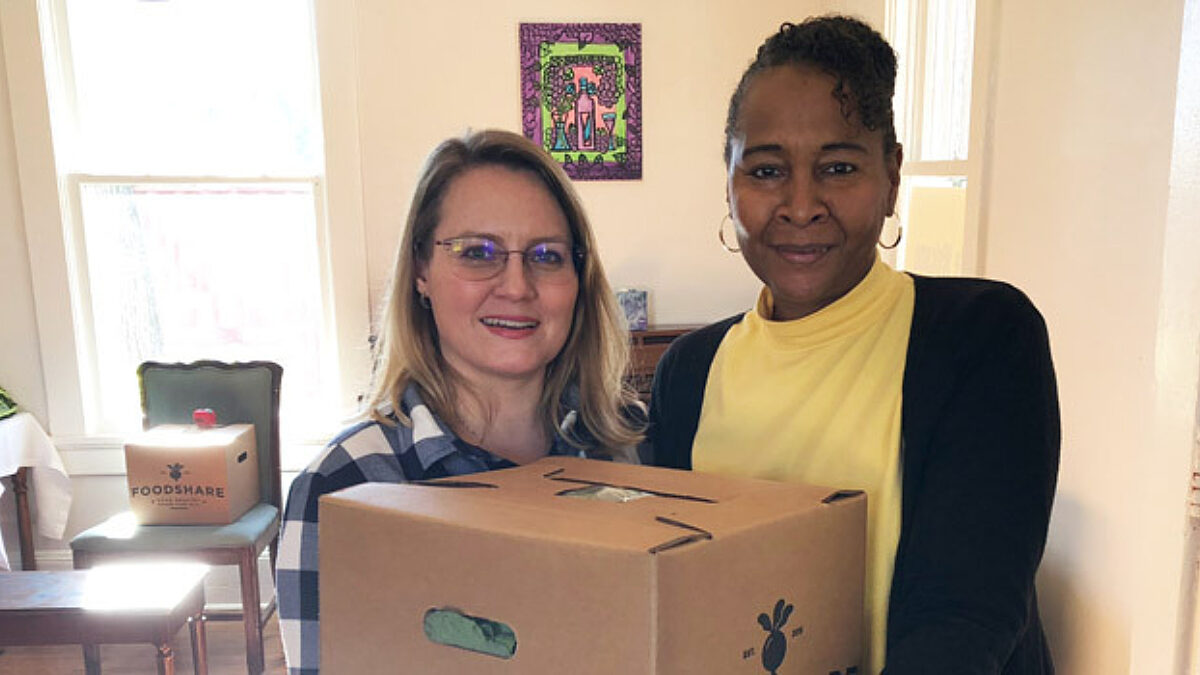
Church sows seeds of love producing food for those in need
By Laura Camby McCaskill
SPARTANBURG—One pastor has taken up the call to feed the hungry through missions.
The Rev. Darrell McNeill, of Spartanburg Urban Mission, has been involved with feeding programs since 2015. Starting with a program called the Market Garden, McNeill and interns worked with those in need by developing a savings account for the working poor. In exchange for working in the garden, clients attended a one-hour class meeting per week, owned what they planted and received help selling their produce. For example, one person sold $5,000 at the farmer’s market during the summer, while another started a catering business. Additionally, clients received help exploring God’s call on their lives while also learning to access resources in the city, or “career ladders.”
In 2018, the mission received a significant grant from the South Carolina Association for Community and Economic Development, which led to a partnership with an existing program in Columbia called Foodshare, established in 2015.
Another partnership with the University of South Carolina medical school and the Palmetto Health USC School of Medicine helped bring Foodshare to Spartanburg.
“We are in an urban neighborhood called the North Side, (which is) poverty stricken. It’s a food desert,” McNeill said. “We knew we had to adapt the mission here; we needed to reach more people. We had to show (that) after a year, (there was) a larger impact than the last three years and it has taken off. It’s growing rapidly. There is a tremendous need.”
More than half the customers served are SNAP/EBT customers who are being served in Columbia, Greenville and Spartanburg.
“We know that the city of Spartanburg in 2015 was rated 186 out of 190 through the United States,” McNeill said. “Spartanburg was rated near the bottom for food insecurity. The issue of poverty and hunger is great here. That’s what we’re targeting.”
When customers find out about the program, they contact Foodshare, which enrolls them and processes their EBT card (they are a SNAP retailer with the United States Department of Agriculture).
Customers preorder their box and pick it up every other Wednesday. They’re educated on healthy eating, and the Foodshare program includes healthy recipes in their boxes. When they pick up their box, they preorder for the next time.
“We’re trying to promote community health, cooking education and health education with healthy recipes and more,” McNeill said.
The cost of a box is $5, and customers are allowed four boxes per month. Low income customers who do not qualify for SNAP/EBT pay $15 per box. Each box contains nearly a dozen different varieties of fruits and vegetables. During the growing season, Foodshare sources 50 percent of its food from local famers. In the off-season, Foodshare uses the state farmers market.
“It’s high-quality food,” McNeill said.
The Foodshare program costs $7,500-$9,000 a month to run at its current location, the Spartanburg hub of Foodshare, where all food distribution occurs for customers and partner sites. Partner sites require training, and one volunteer can spend five hours a week processing orders at their location.
Since 2015, Foodshare has distributed 585,000 pounds of fresh, high-quality, nutrient-dense food; a total of 28,000 food boxes have been picked up. The program is in the process of expanding to other cities.
The program located in Spartanburg started with 12 families and has grown to approximately 48 families to date. They’re projecting to supply 150 families by end of the year.
Over a span of three years, Greenville and Columbia programs have expanded to serve 450 households biweekly year-round. These numbers are expected to be shared by the Spartanburg location.
“Most of the people that we are serving are low-income single mothers or a grandmother that’s taking care of grandchildren,” McNeill said. “The majority of these people are un-churched. When they come here they know we are the extension of the church. They share with us the struggles of their lives both good and bad.”
Often, he said, they want a prayer or a referral to a church or church program for further help and support.
“This is a vital ministry of the church: to reach people that are not connected to the church,” McNeill said. “We see our work as evangelism, because we do have good news to share with these people. We really establish a long-term relationship. We get to know these people, their children. They bring their dogs. They share with us what they’re doing throughout the week, how they’re really surviving with limited resources. They minister to us when they share that good news, as well.
“It’s beautiful when you see the survival instinct of these single mothers. It’s quite amazing.”
Volunteers help with sorting boxes on customer pickup days from 10 a.m. to noon. Partner sites like Spartanburg Regional Medical Center and Upstate Family Resources Center pickup boxes between 12-2 p.m., and customers come between 2-6 p.m.
Since 2015, The United Methodist Church has invested approximately $150,000 for the establishment of this mission, McNeill said.
In the future, Foodshare hopes to enroll in a program with the hospital called the Community Kitchen. This program would offer educational classes and more.
“I think this is an example of ministry outside the walls of the church that is reaching the community at-large for improved community health, but also reaching the unchurched,” McNeill said. “This is called a market place ministry.”
To learn more about Foodshare: 864-586-2840 or www.foodsharesc.org.